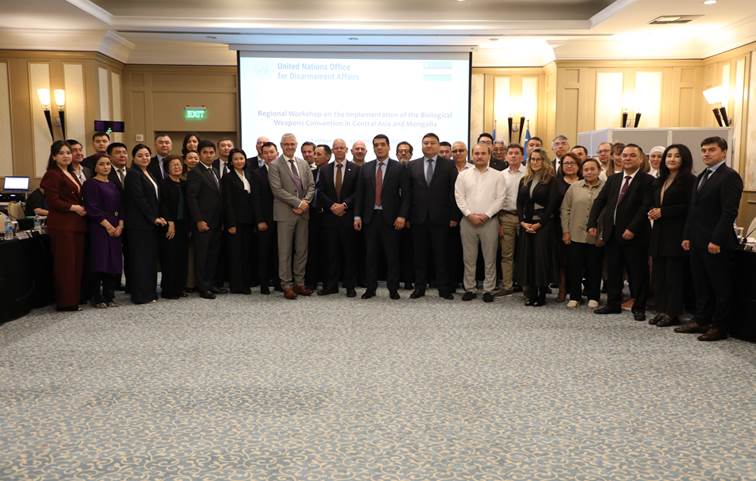From 23 to 24 September 2025, in Tashkent, Uzbekistan, the Implementation Support Unit (ISU) of the Biological Weapons Convention (BWC) within the United Nations Office for Disarmament Affairs (UNODA) organized a regional workshop on the implementation of the BWC in Central Asia and Mongolia. The workshop was held in cooperation with the Committee for Industrial, Radiation and Nuclear Safety under the Cabinet of Ministers of the Republic of Uzbekistan.
The purpose of the workshop was to deepen participants’ understanding of the Convention and to inform about the efforts within the Working Group on the Strengthening of the Convention. Participants were also briefed about biosecurity related initiatives in the region which enhance the implementation of the Convention. In addition, participants were informed about opportunities for regional and international cooperation and assistance.
The workshop gathered 42 participants from Kazakhstan, Kyrgyzstan, Mongolia, Tajikistan, Turkmenistan and Uzbekistan. Furthermore, representatives from the European Union CBRN Centre of Excellence (EU CBRN COE) Regional Secretariat for Central Asia, the International Centre for Genetic Engineering and Biotechnology (ICGEB), the International Science and Technology Center (ISTC), the Organization for Security Co-Operation in Europe (OSCE), the United Nations Institute for Disarmament Research (UNIDIR), the United Nations Interregional Crime and Justice Research Institute (UNICRI), the World Health Organisation (WHO) and the World Organization for Animal Health (WOAH) also participated.
The workshop facilitated an informative exchange among States Parties in the region about effective practices and challenges in relation to implementing the Convention. As part of the workshop, participants also visited the Institute of Microbiology in Tashkent and receive a briefing about Uzbekistan’s mobile laboratory.
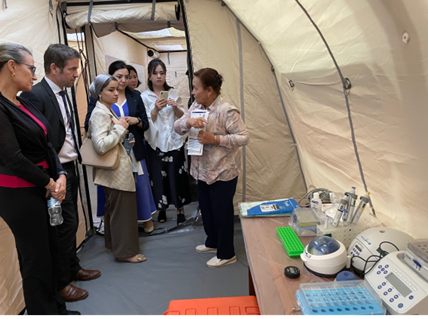
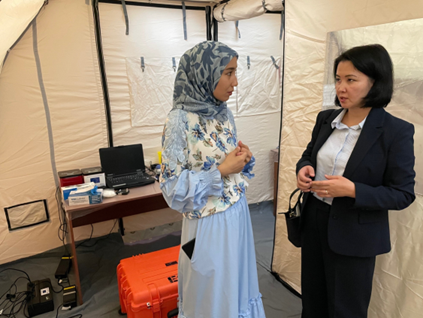
During a breakout group session, participants developed suggestions for raising awareness about the BWC and strengthening the Convention’s implementation, discussed existing gaps and effective practices in the area of biosecurity, and exchanged views on priorities for regional and international assistance. In this regard, representatives from the EU CBRN COE, ICGEB, ISTC, ISU, OSCE, UNICRI, UNIDIR, WHO and WOAH briefed about relevant biosecurity initiatives in the region and highlighted potential opportunities to further strengthen national capacities.
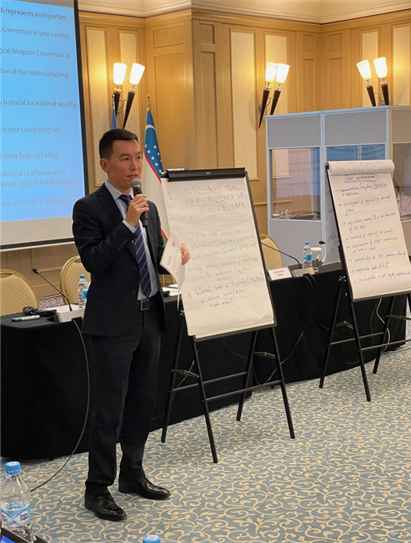
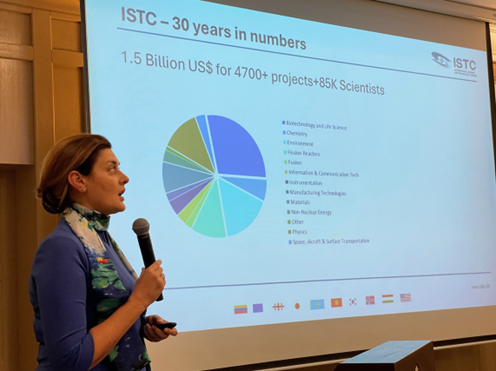
The regional workshop provided a useful opportunity to strengthen the implementation of the BWC in Central Asia and Mongolia. It is hoped that the workshop will lead to the nomination and updating of BWC National Contact Points and facilitate the submission of comprehensive Confidence-Building Measures reports from all States Parties in the region. Furthermore, lessons from the workshop will enrich the ongoing discussions within the Working Group on the Strengthening of the BWC in Geneva.
The regional workshop was made possible with financial support from the United Kingdom of Great Britain and Northern Ireland and from Kazakhstan. Additional information on the BWC is available here.
